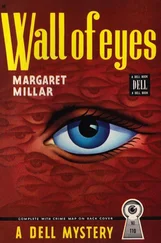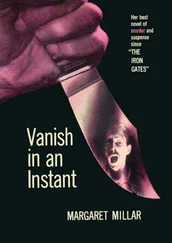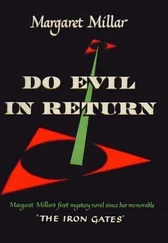“One of the most important questions you must ask yourselves is: Did Cully King have a reason to kill Madeline Pherson? A sane man — and we have no evidence that Mr. King is anything but sane — does not kill without a motive. No motive has been proved. It should be noted, however, that because we do not know of a motive one does not exist. This is a big question, however, and must be considered carefully.
“Now, the first thing you’ll do when you begin your deliberations is to open your notebooks. Information contained in these notebooks may be freely exchanged among yourselves. When more precise details are required, you may ask the bailiff to bring you back into this room so the parts of the transcript you want will be read aloud to you. Copies of the transcript itself are not allowed in the deliberation room.
“In your notebooks you may have jotted down an impression, an observation, an opinion that will not only refresh your memory but also dredge up the feelings you had at the time on whether or not a witness was reliable or if you had doubts about his or her testimony.
“Before you even begin to discuss the guilt or innocence of the defendant, you must answer the all-important question: Was a murder committed? Some factors point to suicide. If Mrs. Pherson did not exhibit the usual signs of despondency, she certainly departed from her ordinary behavior in a manner that indicated some degree of emotional disturbance. Was it severe enough to precipitate suicide?
“Could her death possibly have been an accident? The ship’s log indicates a calm sea that night, so a sudden lurch of the vessel didn’t knock her overboard. Nor was it likely she’d been strolling around the deck stark naked in such cold weather.
“The ultimate question you must ask yourself, and the answer you must live with, is one of reasonable doubt. Is there reasonable doubt that Mrs. Pherson was the victim of murder at the hands of Cully King? Reasonable doubt is the deciding factor in most cases based on circumstantial evidence.
“The law states that before reaching a verdict in a criminal case, the jury must be convinced beyond a reasonable doubt and to a moral certainty. ‘Beyond a reasonable doubt’ is self explanatory, but the latter phrase has caused much disagreement, being one of the few instances where the law is imprecise. I have received a note from one of the jurors requesting a definition of ‘moral certainty.’ A previous officer of the court defined it as a gut feeling. I’m not sure I can do better than that, although putting too much reliance on moral certainty alone would not serve the interests of justice.
“You will be in the charge of the bailiff from now until the end of your deliberations. I wish you luck.”
As soon as the judge left the courtroom by his private door, Eva Foster walked quickly out of the main door and down the corridor to meet him in chambers. He was hanging up his robe when she entered.
“That was,” she said, “I mean, your instructions were, very good.”
“Maybe your feelings are somewhat colored, if you’ll pardon the expression.”
“I don’t quite under — oh, I see. ‘Colored’ is the word they used to indicate blacks many years ago.”
“Not very many. I’m about your father’s age, am I not?”
“Roughly.”
“I met your father at the carol sing last Christmas. By the way, could we do without the cards this year?”
“It won’t be my decision. I don’t expect to be here.”
“Still going after this guy tooth and nail, are you?”
“If you want to put it that way, yes.”
“Preacher, church, father giving away the bride, the whole bit?”
“No preacher, no church, certainly no father giving away the bride. Maybe no bride, for that matter.” She went over to the window and stood looking down at the traffic. Though the window was closed and locked, she took a long, slow breath as if there were air coming in, clean and fresh from the sea. “I don’t care if he marries me or not. Just as long as we’re together I’ll be content.”
“Sure of that?”
“Yes. I’ve thought about it a lot.”
“You haven’t thought about it, Foster. You’ve dreamed .”
“My plans are made. We’ll buy a small house; I have enough money for a down payment. We won’t have any children, but I’ll get a dog, maybe two dogs to keep each other company and to keep me company when Cully’s at sea.”
“There’s a difference between a dreamer and a planner, Foster. A planner would take into consideration the possibility that Cully might not be available to fit into any plans.”
“He’ll be acquitted, I’m sure of it. Your speech made it clear that you expected the jury to return a verdict of innocent.”
“Juries don’t do what’s expected of them; they do what they damn well want to.”
“Cully should have been given a chance to take the stand so the jury could watch him react, listen to him talk. They could have seen for themselves what a good man he is.”
“He’s a liar,” the judge said. “He’d have tripped over his tongue every time he opened his mouth. Donnelly did well to keep him off the stand.”
“Why, you sound” — she turned from the window — “you sound as if you think he’s guilty.”
“I think the prosecution did not prove its case and the verdict will reflect that fact.”
“But what do you really think inside your heart?”
“I think you’re a headstrong young woman who will continue to believe what she wants to believe about this man. The more he’s accused, the more you’ll defend him.”
“I’m a reasonable person. If you had real proof of Cully’s guilt, I would believe it.”
“If I had real proof, I’d have presented it to the jury in one way or another, and they would have believed it.” The Judge’s voice was somber. “I have one piece of advice for you which I believe you’re still realistic enough to take. Don’t be in any hurry to send in your resignation. At least wait until the guy indicates willingness to go along with you and the little house and the two dogs.”
“You sound cold and mean.”
“As long as you’re wallowing around in this emotional swamp everyone who criticizes him will seem to you cold and mean when, in fact, they’re trying to be kind.”
“Is this your idea of kind?”
“Yes. I’d like to prevent you from being found drowned in the sea or in an alley with your throat cut or tossed out of a car with a bullet in your brain.”
“You can’t really believe Cully is capable of such things.”
“Sure I can.”
“You really are cold and mean.”
“And sensible,” the judge added. “Very, very sensible.”
The first ballot was taken on the third day of deliberations and the final one in the late afternoon of the fifth day. An hour’s time was allowed for the parties involved to reach the courthouse and be present for the reading of the verdict.
Some of the court watchers who’d been coming every day awaiting the jury’s decision were in line outside the locked door of the courtroom within minutes of the announcement that the jury was coming in. To avoid the crowd that was already forming, the court personnel entered through a side door, as did both counselors and their investigators and Cully himself, this time not in the custody of his usual deputy but of four new ones. They all were pleasant-looking young men, but their presence emphasized the grimness of the occasion. Then the judge came in, and the jury, and finally the main door was opened to the public. The court watchers rushed in for front-row seats, followed by the reporters, the woman artist who’d done the sketch of Cully, assorted lawyers and secretaries who were interested in the trial and witnesses like Harry Arnold and Richie, who had not been allowed in except while they were standing along the rear wall. The bailiff pushed the rest of the crowd back into the corridor.
Читать дальше
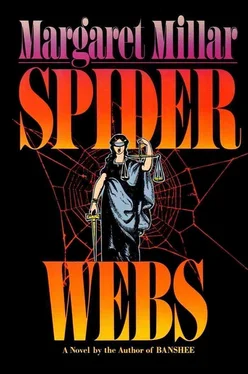

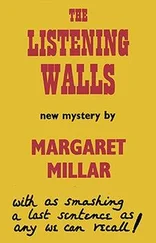

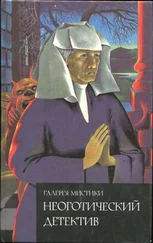
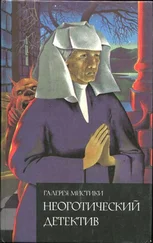

![Маргарет Миллар - Rose's Last Summer [= The Lively Corpse]](/books/384369/margaret-millar-rose-s-last-summer-the-lively-c-thumb.webp)
